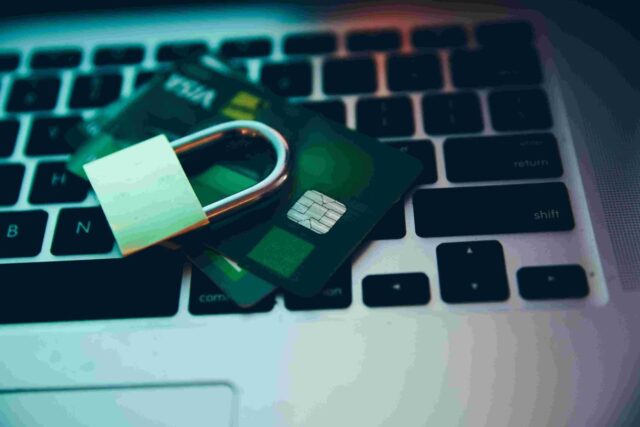In a significant blow to the cryptocurrency industry, Transak, a prominent crypto on-ramp service, recently disclosed a data breach that compromised the sensitive personal information of over 92,000 users. The affected data includes names, email addresses, and phone numbers, sparking concern about the adequacy of security protocols within the sector. The breach, reportedly triggered by a security lapse involving a compromised employee laptop, raises critical questions about the robustness of cybersecurity measures in the fast-evolving digital asset space.
What Happened?
The breach at Transak came to light in October 2024 and has since been widely reported across various industry platforms. According to official statements, it impacted 1.14% of the platform’s user base – roughly 92,000 users. The company attributed the breach to an incident where an employee’s laptop was compromised outside the secure work environment. It allowed malicious actors unauthorized access to Transak’s systems and exposed the personal information of users. The incident also highlights a vulnerability in how companies handle security for remote work setups.
Security Failures and the Ripple Effect
Transak’s partners, including the popular wallet service Trust Wallet, responded swiftly. They suspended services linked to Transak as a precautionary measure while investigations unfolded. This incident marks yet another reminder of how the crypto space, despite its cutting-edge technology, remains susceptible to traditional cybersecurity risks like phishing and social engineering attacks.
While Transak didn’t report financial data or passwords as compromised, the exposed information still poses significant risks. The perpetrators could leverage the personal data of users for phishing schemes, identity theft, or targeted attacks. Cybercriminals commonly employ these tactics after a breach. The aftermath has left many users on alert, urging them to safeguard their accounts and remain vigilant against suspicious activity.
The Industry-Wide Implications
The Transak breach is not an isolated case. It is part of a growing trend of cybersecurity issues plaguing the cryptocurrency sector. In recent years, data breaches and attacks on crypto exchanges and platforms have become more frequent, exposing the limitations of current security measures. Many of these breaches exploit weak points in infrastructure, third-party services, or human error – like the case of the compromised laptop at Transak.
Cryptocurrency platforms operate at the intersection of finance and technology, making them a high-value target for cybercriminals. As the industry continues to grow, the need for stricter security protocols becomes ever more pressing. The incident underscores the necessity of securing internal systems and also ensuring robust security practices for employees, particularly when working remotely or using personal devices.
>>> Read more: Crypto Cybercriminals Target CEXs Amid 2024 Crime Surge
What’s Next? The Call for Regulation and Oversight
The breach at Transak has intensified ongoing discussions about regulatory oversight in the cryptocurrency sector. Regulators have already been pushing for more stringent measures to protect users and ensure transparency in how platforms handle digital assets. This latest breach adds to the growing list of incidents that could spur more aggressive regulatory action to enforce compliance with higher cybersecurity standards.
Many experts argue that, while decentralized finance (DeFi) and blockchain technology offer groundbreaking solutions, they also present unique challenges that require new security paradigms. The industry needs to adapt rapidly. They must implement end-to-end encryption, multi-factor authentication, and decentralized identity solutions to reduce the risks of such breaches. Moreover, regulators may push for mandatory breach reporting and greater accountability from service providers.
The Future of Crypto Security
As Transak works to address the fallout from this breach, the broader industry faces a reckoning. The cryptocurrency market, though built on cutting-edge technology, must prioritize security as foundational, especially as it continues to attract more users and capital. Cybersecurity is no longer just a technical issue – it’s integral to the trust and credibility of the entire ecosystem.
The Transak incident serves as a wake-up call for crypto platforms and regulators alike. Moving forward, the sector will need to invest heavily in protecting user data. The industry must prove it can keep pace with increasingly sophisticated cyber threats.
Readers’ frequently asked questions
What specific data was exposed in the Transak breach, and how could it be misused?
The Transak data breach exposed the personal information of over 92,000 users. The compromised data includes names, email addresses, and phone numbers. While so far there are no reports of leaked financial data, passwords, or cryptocurrency-related information, the exposed data still carries significant risk. Cybercriminals could exploit this information in several ways. Phishing attacks are a major concern. Malicious actors could send fraudulent emails or messages to trick users into revealing further sensitive details, such as login credentials for crypto wallets or exchanges. Additionally, having access to phone numbers increases the possibility of targeted smishing (SMS phishing) attempts, potentially leading to identity theft. Even though users have not reported financial losses yet, they must remain cautious. They should take preventive steps, such as enabling two-factor authentication and monitor their accounts closely for any suspicious activity.
What steps has Transak taken to address the breach and protect users going forward?
After identifying the breach, Transak immediately launched an investigation and worked to secure its systems. One of the most visible responses was the temporary suspension of services by key partners like Trust Wallet. They halted integration with Transak until further notice. This step was likely taken to ensure no further vulnerabilities existed in the affected systems, preventing additional data from being exposed. Beyond securing the compromised systems, Transak will need to improve its overall cybersecurity practices, particularly regarding employee device management. Remote work protocols and safeguarding endpoints, such as laptops, are critical in preventing future breaches. It’s expected that Transak will also need to update its internal policies around device security, possibly implementing stronger encryption, monitoring, and incident response systems. However, specific details on future preventive measures are still emerging as the investigation unfolds.
What regulatory consequences might result from the Transak breach, and how could this incident impact the wider crypto industry?
The Transak breach adds fuel to ongoing debates around the need for more robust regulation in the cryptocurrency industry. As crypto services handle increasingly sensitive user data, regulators globally focus more on compliance with security and privacy standards. This breach may accelerate efforts to enforce tighter controls on crypto platforms. It could potentially lead to new regulations that mandate stronger security protocols, like end-to-end encryption, mandatory breach reporting, and stricter oversight on how user data is stored and protected. The incident also highlights the risk of insufficient third-party or employee security measures, which could prompt regulators to demand higher standards from service providers. The Transak breach is likely to serve as a case study for why stricter regulatory frameworks are needed, particularly as more users and capital flow into the crypto space.
What Is In It For You? Action Items You Might Want to Consider
Strengthen Your Account Security
In light of the recent Transak data breach, it’s important to revisit your account security measures. Enable two-factor authentication (2FA) across all your crypto-related platforms, including wallets and exchanges. This extra layer of security can prevent unauthorized access to your accounts even if your email or phone number has been compromised. Regularly update your passwords and avoid using the same credentials across multiple services.
Monitor for Unusual Activity
Given that personal information like email addresses and phone numbers were exposed, stay vigilant for phishing attempts or suspicious messages. Be cautious of any unexpected communications asking for sensitive information or urging you to click on links. Keep an eye on your financial accounts and crypto holdings for any unusual activity. If you’re a Transak user, consider enabling alerts on your accounts so you can respond quickly to unauthorized actions.
Stay Updated on Regulatory Changes
As this breach may prompt regulators to push for stricter cybersecurity laws in the crypto sector, traders should pay attention to any upcoming compliance requirements. This could include new regulations for platform security standards, mandatory breach reporting, or enhanced user data protection measures. By staying informed, you’ll be prepared to adjust your trading strategy or choose more secure platforms that adhere to stronger regulations.










